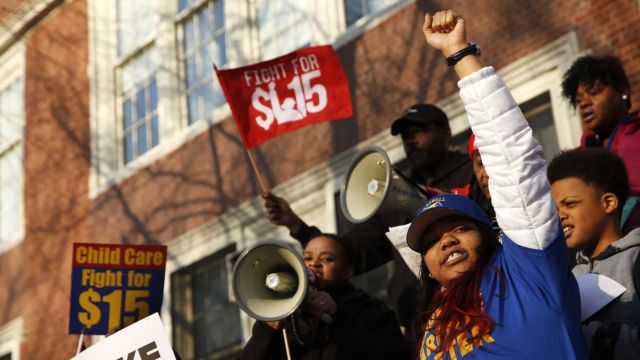WFCN – On July 1, the annual incremental increase in the minimum wage will become effective, giving many Chicago workers a summertime boost. Along with other changes, a new paid time off policy is scheduled to go into force at the start of next month.
The hourly minimum wage in Chicago will rise from $15.80 to $16.20 for companies with 21 or more workers, and from $15 to $16.20 for companies with 20 or less workers. This will eliminate the pay gap that existed between large and small enterprises.
According to Johnson’s office, the hourly minimum wage has increased annually since rising to $15 in 2021 in accordance with changes in the Consumer Price Index or at a rate of 2.5%, whichever is lower.
Furthermore, youth programs will get subsidies for the hourly minimum wage, with a $15 minimum pay for sponsored transitional job programs.

Experts suggest there may be a “dramatic drop” in student loan payments soon. What You Should Know About the Change
New financial filings from the Supreme Court detail Beyoncé’s tickets, book advances, and Bali trip.
The tip wage credit for tipped workers is being phased out over a five-year period as part of the One Fair Wage ordinance.
SEE MORE –
Metro Announces Fare Hikes for Bus and Rail Services Beginning July 1, Know Here As Soon As!
The hourly minimum salary of $11.02 for tipped workers, which includes bussers, servers, and bartenders, will climb by 8% annually until July 1, 2028, when it will match the city’s standard minimum wage.
The office of Mayor Brandon Johnson also states that on July 1, the standards of the Fair Workweek Ordinance will undergo a “scheduled enhancement” in addition to the introduction of the Paid Leave and Paid Sick and Safe Leave Ordinances.
All Chicago employees are given up to five days of paid leave and five days of paid sick leave if they work at least 80 hours in a 120-day period.
The following are specified in the paid leave requirements:
Workers can accrue up to 40 hours of paid leave in a year at the rate of one hour for every 35 hours worked.
It is imperative that employees have the ability to utilize their earned paid leave by the 90th day after their employment commitment.
If paid leave is not front loaded, employees may carry over up to 16 hours between 12-month periods.
Workers may use paid time off for any purpose.
The following is stated in the standards for paid sick and safe leave:
Workers can collect up to 40 hours of sick leave in a year at the rate of one hour for every 35 hours worked.
Workers must be permitted to use sick leave that they have acquired by the thirtyth day after their work commitment.
Workers are permitted to carry over up to 80 hours every twelve months.
Paid sick leave is available to employees for both safety and medical reasons.
Starting on July 1, the Fair Workweek Ordinance will also incorporate revised salary measures.
If an employee works in any of the following seven “covered” industries, they are covered by the ordinance:
Construction-related services:
- Medical care
- Accommodations
- Producing Dining Establishments
- Services for retail warehouses.
- Employees must also make less than or equal to $31.85 per hour or $61,149.35 annually, and they must work for a firm with at least 100 employees worldwide.
If running a restaurant, 30 locations and 250 employees are required.
According to the regulation, some firms must give their employees “predictable work schedules and compensation for changes.”
